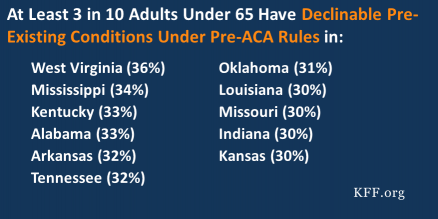
What is premium tax credit?
The Premium Tax credit is a federally funded initiative that helps reduce the cost of premiums for insurance purchased through the Health Insurance Marketplace. Families and individuals that meet the eligibility requirements with an income below the federal level of poverty can receive this tax credit.
How does it Work?
When you apply to the Marketplace for health insurance, you must estimate your family income in order for your insurer to determine the amount of premium tax credits you will receive. This credit is then sent directly to your insurance company, lowering your monthly premium costs.
When your insurer issues your policy, if you are eligible for the premium tax credit you will receive a "Health Insurance Marketplace Statement", also known as a Form 1095-A. The form will report your tax credit to IRS.
Your premium credit is based off your estimated household revenue and the size your tax family. (You, your spouse or dependents if you filed jointly with your spouse) Your premium tax credit may change if you have a change in income or your tax family changes.

What happens if the income you receive is more than you had expected?
If your income goes up during the year, you may have to pay back part or all of your premium tax credit. The maximum you can pay is 400% of your household income. This is also known as "the clawback."
How does it work when your income changes?
You should report any changes in your income to the Marketplace as soon as possible. You will avoid having to pay back any excess premium tax credits at the end.
The amount you have to pay back depends on your income and whether or not your income is above the poverty line. The rules are outlined in the instructions for Form 8962, which is used to report information related to claiming an offset to the cost of purchasing health insurance through the Health Insurance Marketplace.
What is Form 8962?
You'll need the amount of your 2021 advance premium tax credit when you file your return. You will have to pay the amount due based on the results of a reconciliation of your advance premium tax credits received during 2021, with the actual premium credits for that year.
This form is used to reconcile any advance premium credit that you may have received between 2021 and now. This form can be found on the website of your state or the IRS.

IRS requires that you also report the results from the reconciliation of any advance premium credits you received for 2021. You will find this information on line 29 of Part III on your federal tax return for 2021.
There are some exceptions to this rule, such as if your household income is above 138% of the poverty level in states that have not implemented the ACA's Medicaid expansion or if you received unemployment compensation for any week beginning in 2021. These exceptions apply only to the income reported on your 2021 taxes.